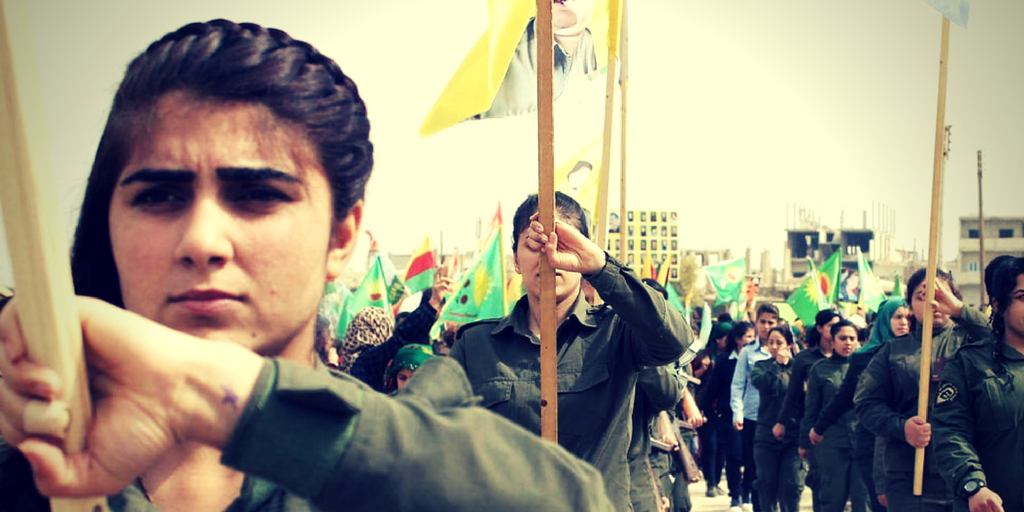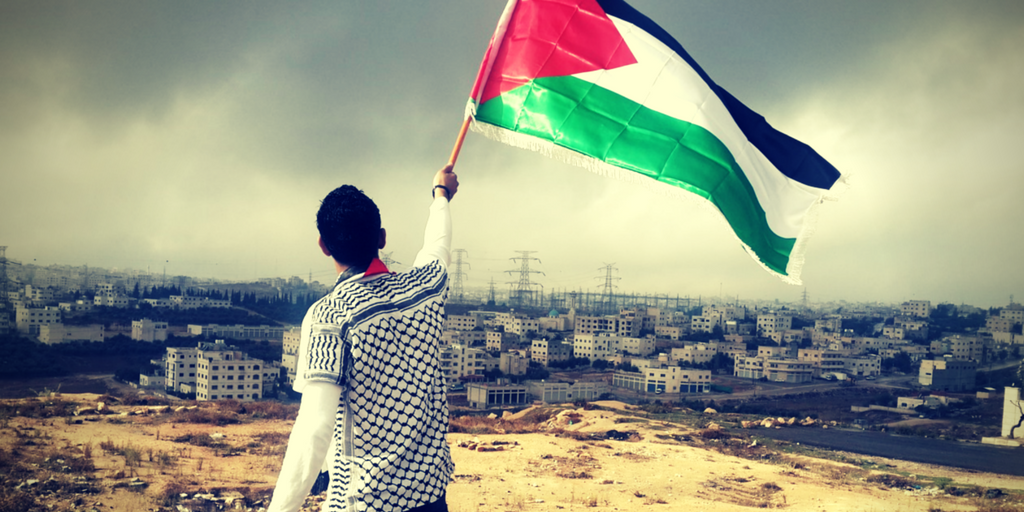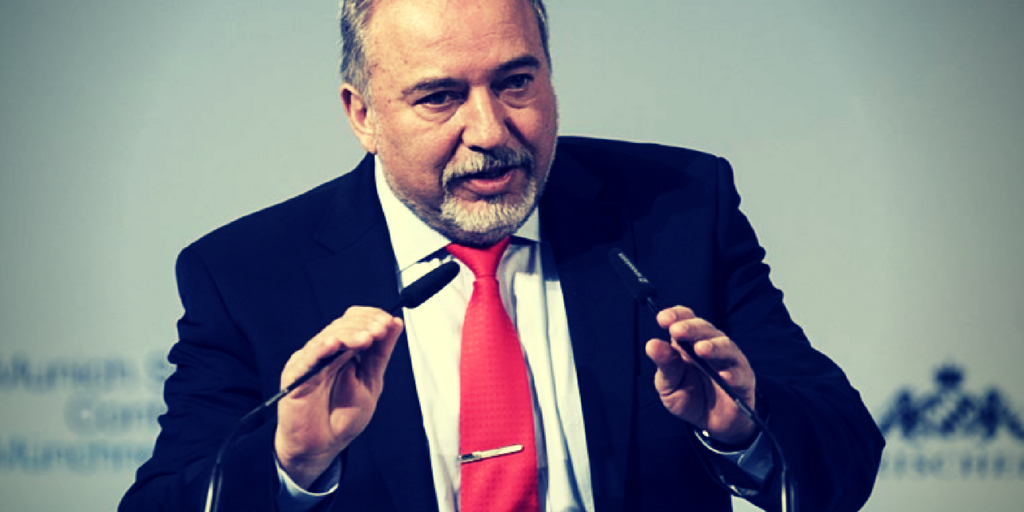Israel must convey that it will consider the continuation of the “March of Return” an overt act of war, and all the participants in it, enemy combatants—who must expect to face all the risks that entails.
… this wasn’t a fight against the occupation. This wasn’t a march for peace. This wasn’t resistance to the settlement enterprise. This was…the desire to annihilate Israel—as the march’s organizers publicly declared—and the crazy shouting of the march’s participants. “Khaybar Khaybar, ya yahud,” which is the Muslim battle cry, from days of old, to slaughter Jews. Not Zionists. Not Israelis. Jews. – Ben Dror Yemini, YNet, April 4, 2018.
The mass demonstrations that took place over the weekend on the fence separating Gaza from Israel, underscores two points of grave significance. The one relates to past decisions made by Israel; the other to future ones it will have to make.
With regard to the past, it is clear that the formula of land-for-peace has failed dramatically, disastrously and definitively.
“Land-for-peace” has failed both Jew and Arab
After all, it was in Gaza that the misguided experiment of attempting to foist self-rule on the Palestinian-Arabs was initiated with Yasser Arafat’s triumphant return to the coastal enclave in July 1994, amid much fanfare and international acclaim.
The events of last Friday have proven just how unfounded the high hopes of peace and prosperity, back then, were. For the process that was set in motion in mid-1994 has-predictably—brought only trauma and tragedy to Jew and Arab alike, precipitating three devastating wars, with a fourth widely deemed inevitable.
However, although it has imposed several serious security challenges on Israel—such as suicide bombing, overhead rockets, underground terror tunnels, lone-wolf knifing and ramming attacks—what it has wrought on the Palestinian-Arabs is far worse—particularly in Gaza, where it all began.
With frequent and extended power outages, soaring unemployment, pervasive penury, undrinkable water, polluted beaches and awash in flows of raw sewage, the largely destitute Gazan population has been the real victim of two-statism and the ill-conceived initiative to grant them political sovereignty. To make matters even worse, the head of the Palestinian Authority, Mahmoud Abbas, locked in a fierce power struggle with Hamas that (mis)governs Gaza, is threatening to make the situation of the hapless Gazans even more desperate—by further cutting off funds to reduce electric power, food and medical supplies.
So almost a quarter-century since the Oslo Accords were signed, allowing self-rule to the Gazan-Arabs, and well over a decade after Israel completely evacuated the Gaza Strip, removing any remnant of Jewish presence, all the perversely named “peace process” has produced is hordes of Gazans, tens of thousands strong, massing at the border, egged on by their leaders to obliterate Israel—within the pre-“occupation” borders—in what was dubbed the “March of Return”.
A March to destroy Israel
This was clearly articulated in the fiery proclamation by the head of Hamas, Yihya Sinwar, who vowed: “The ‘March of Return’ will continue. It will not stop until we remove this transient border. Friday’s protests mark the beginning of a new phase in the Palestinian national struggle on the road to liberation…and the return of the Palestinian refugees and their descendants to their former homes inside Israel…”
He continued, declaring “The ‘March of Return’ affirms that our people cannot give up one inch of the land of Palestine … The protests will continue until the Palestinians return to the lands from which they were expelled 70 years ago”.
The reference to erasing the “transient border” between Gaza and pre-1967 Israel, to the “return of the Palestinian refugees and their descendants to their former homes inside Israel and…the lands from which they were expelled 70 years ago” removes any doubt as to the purpose of the so-called “March of Return”.
For this clearly indicates that the sense of “grievance” that the March is intended to address is not any alleged injustice due to the “Occupation” (which began in 1967, just over 50 years ago) but the existence of Israel as a Jewish state (established in 1948 i.e.–70 years ago).
Thus as Gatestone’s Bassam Tawil aptly points out in his “A March to Destroy Israel”: “Hamas leaders Ismail Haniyeh and Yehya Sinwar… did not hide the real goal behind the ‘March of Return’—to destroy Israel”.
Significantly, Tawil’s grim diagnosis closely reflects the appraisal by left-leaning columnist Ben-Dror Yemini (see introductory excerpt) that the March was a manifestation of the “the desire to annihilate Israel—and.. to slaughter Jews. Not Zionists. Not Israelis. Jews”
“We will eat the livers of the Jews”
Israel can ill-afford to treat the “March” as anything less ominous—especially in light of the manifest resolve to continue—even, escalate—the hostile rally on the border. Indeed, recent reports suggest that the participants will attempt to obscure the vision of the IDF forces with smoke screens produced by burning huge quantities of old tires and blinding IDF sharpshooters with mirrors and lasers, to allow rioters to breach the fence, undetected.
One needs little imagination to picture the ghastly consequences should even a tiny fraction of the frenzied mob, pressing against the fence, were to burst through and overrun a single Israeli community close to the border, butchering the residents, ravaging the women, and razing the homes. After all, it was none other than Sinwar himself who unabashedly pledged publicly that the invading Gazans would “eat the livers” of Israelis they encountered.
Clearly, Israel cannot afford to treat this initiative to launch a popular invasion of its sovereign territory with anything other than zero tolerance. For even the perception of partial Palestinian success is likely to ignite similar mass marches in Judea-Samaria, on Israel’s northern border and even among Israeli Arabs in the Galilee, the Ara Valley and the Negev.
Misguided moderation
In confronting this impending danger, Israel must avoid the intellectual pitfall of thinking that matters can be contained by adopting moderation as a policy guideline. Quite the reverse is true. Nothing could coax the Palestinian-Arabs more into sustaining and escalating their action than the belief that Israel’s response will be “moderate” a.k.a. proportionate. Indeed, nothing could motivate them more than the conviction that Israel will refrain from undertaking punitive measures that will inflict unacceptable – a.k.a.
disproportionate—cost on them.
One only need look at how the Gazans have enhanced their capabilities in rocketry and tunnel excavation to understand how grave the peril will be if they are allowed to persist, unchecked, in their new stratagem of popular invasions of Israel. Thus, Israel’s response must be determined by the overall potential threat entailed in such attempted invasions, not by the specific actions of the participants on any given day—just as its response to Hamas’s attempt to develop missile capability should have been determined by the overall potential threat entailed in it amassing of a vast arsenal of such weapons, not by the damage caused by the firing of several rockets on any given day.
How different Israel’s situation would be today if it had followed this recommendation. How dire it will be if it fails to follow it regarding the future threat.
Avoiding the prognosis of the “algorithm”
There is a conceptual “algorithm” that clearly illustrates why moderation will propel the conflict to spiral out of control, into levels of violence previously unimagined—or at least into levels of violence well above those that moderation was intended to prevent.
For if one is confronted by violence from hostile antagonists, and one confronts it with minimal force to contain it, the result will not create deterrence but only immunize the aggressors against fear of their opponents’ response and motivate them to initiate greater violence in the next round—which, if again, is only confronted by minimal force, will again not deter but only immunize against fear and herald yet another round of (greater) violence.
Thus, over time, the tit-for-tat exchange of moderate responses, in which the aggressors are secure in the knowledge that they will suffer only costs they are prepared to bear, will escalate to degrees previously unforeseen.
Indeed, only if the aggressors believe that their adversary will respond with massive, disproportionate force, and they will suffer unacceptable losses, are they likely to refrain from launching their initial hostilities.
Clearly then, moderation is liable to undermine deterrence and precipitate the very outcome it was intended to prevent.
“March” is an act of war; the participants, enemy combatants
Clearly, Israel cannot allow the sustained specter of large, potentially violent—even lethal—mass demonstrations to endure for long. After all, this will inevitably draw off and pin down large numbers of troops, which will severely disrupt other IDF activities. This could obviously be used as a distraction or diversion to facilitate perpetration of other terror activities.
Accordingly, Israel must convey, unambiguously, that it will consider the continuation of the “March of Return” an overt act of war and all the participants in it, enemy combatants—who must expect to face all the risks that this entails.
Only by sending this clear and unequivocal message, only by credibly conveying that it has the resolve to act on it, will Israel be able to avoid allowing the current crisis to degenerate into an untenable strategic threat.










